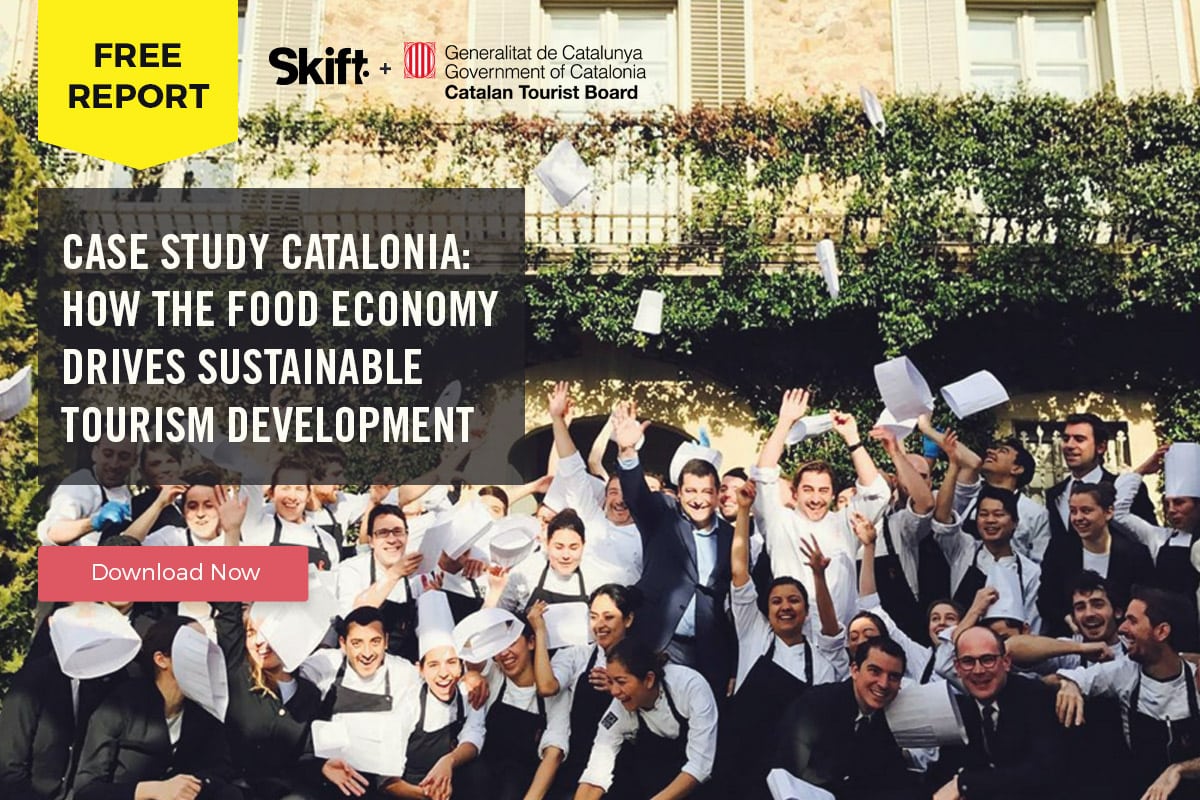Skift Take
When destinations go viral, tensions between locals and visitors can run high. Promoting local food systems can up the ante for residents by maximizing the economic impact of tourism dollars. Building a deeper narrative around local food and culture can also create more fulfilling experiences for the right kind of tourist.
This sponsored content was created in collaboration with a Skift partner.
How can destinations encourage and promote local food systems to foster best practices in sustainable tourism? Here we look to Spain as a prime example, and how local stakeholders can work toward a longer-term vision, where well-managed tourism equates to sustainable economic growth for Catalonia. This region boasts an interconnected and exciting ecosystem, which contributes to its sustainable, culinary footprint.
In this report you will learn:
- What sustainability means for the travel industry in light of overtourism
- The rise of the “local food” movement, and its impact on tourism
- The connection between food systems, economic development, and sustainable tourism
- Food, culture and Catalonia’s rural tourism industry
This report was researched and written by Skift’s head of research Luke Bujarski. Among other pursuits, Luke lived and worked in Barcelona for a number of years. He holds a bachelor’s degree in Spanish linguistics, and a Masters in Urban Planning from the University of Illinois at Urbana Champaign, with a concentration in regional economics.
Have a confidential tip for Skift? Get in touch
Tags: catalonia, destinations, food tourism

